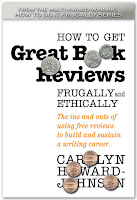In Hubble’s Shadow
By Carol Smallwood
Published by Shanti Arts, 2017
Brunswick, Main
98 pages, $14.95,
paperback
Available on Amazon
Reviewed by Stephen C. Holder, Ph.D , Professor Emeritus, Central Michigan University, originally for Michigan Quarterly Review May 16, 2017
The successful writer must, of
course, have a solid understanding of language and usage. The creative writer needs
a much rarer quality: the ability to communicate insights and visions, to offer
new and often challenging perspectives, to make the abstract concrete, to
portray emotion. In her fine collection of poems, In Hubble’s Shadow, Carol Smallwood shows all these qualities, and
more. At first reading, these poems seem quite different from one another;
repeated readings, however, reveal thematic similarities which make the
inclusion of the poems in one volume more than appropriate. Those already
familiar with Smallwood’s work will be glad to read these poems side by side.
Those new to Smallwood’s world can expect to be charmed by her artistry and
vision.
Smallwood writes clearly and
accurately. Her fine vocabulary allows the reader ready access to a visual
participation in the poems, without the distractions of complex wording. The varied
figurative language, especially metaphor, helps to make the invisible visible,
leading to both certainty and conjecture. Simple images, such as the dandelion
in the sidewalk crack or ice in lemonade, invite us to compare our own
experience and find meaning where there was none before. More complex, but
equally intangible experiences can be found in poems like “Rearrangements,”
which explores the aftereffects of covert child abuse, although each victim is
different.
In this collection many of the
short, yet complete. For example, in “The Sugar Beet Field” the last word,
“regret,’ compels the reader to return to the opening line, “Acres of low green
flourish,” and contrast “flourish” with “regret.” Smallwood seems equally adept
in longer forms, as in the narrative “Dreams of Flying Sestina.” She
occasionally makes use of repetition, much like Robert Frost. The opening and
closing lines of “Dirt Roads,” for example, drive home the theme of the poem:
“Dirt roads as reality checks are to be recommended.”
Throughout the collection, the
commonplace always suggests more. A good example is the transcendental quality
about “Ode to Mud” that connects dirt roads in the spring to man’s small place
in the universe. This is the sort of musing that showcases the artistry of
Smallwood’s poems. In her universe everything is related to everything else,
both in time and space. The concrete becomes an abstract vision of life. In
“Water, Earth, Air, and Fire” we see both ancient and modern attempts to gain
access to universal mystery; the concluding allusion to blind Teirasias, who
could see better than the sighted, connects to the modern dilemma of the
speaker of the poem. Indeed, the distance between the poet’s intent and the
reader’s response is considerable in many of these poems. As we are reminded in
“Wind in Trees,” “the story lies with the interpreter.” And, of course, reality
is often invisible and “seeing is believing” is not always true. In “They say”
Smallwood ponders black holes and other phenomena, but concludes, “And yet, who
has seen the wind?” Probably, this lack of concrete certainty is not a bad
thing, however. “It Rained Today” ends this way: “It’s good we don’t know
that//much about rain.”
Carol Smallwood’s gift of sharing
her experiences and reflections with her readers somehow makes us we know her
and like her. She is realistic but not cold. Her insights become ours. She
leaves her readers asking for more.
MORE ABOUT THIS BLOG
 The New Book Review is blogged by Carolyn Howard-Johnson, author of the multi award-winning HowToDoItFrugally series of books for writers. Of particular interest to readers of this blog is her most recent How to Get Great Book Reviews Frugally and Ethically (http://bit.ly/GreatBkReviews ). This blog is a free service offered to those who want to encourage the reading of books they love. That includes authors who want to share their favorite reviews, reviewers who'd like to see their reviews get more exposure, and readers who want to shout out praise of books they've read. Please see submission guidelines on the left of this page. Reviews and essays are indexed by genre, reviewer names, and review sites. Writers will find the search engine handy for gleaning the names of small publishers. Find other writer-related blogs at Sharing with Writers and The Frugal, Smart and Tuned-In Editor.
The New Book Review is blogged by Carolyn Howard-Johnson, author of the multi award-winning HowToDoItFrugally series of books for writers. Of particular interest to readers of this blog is her most recent How to Get Great Book Reviews Frugally and Ethically (http://bit.ly/GreatBkReviews ). This blog is a free service offered to those who want to encourage the reading of books they love. That includes authors who want to share their favorite reviews, reviewers who'd like to see their reviews get more exposure, and readers who want to shout out praise of books they've read. Please see submission guidelines on the left of this page. Reviews and essays are indexed by genre, reviewer names, and review sites. Writers will find the search engine handy for gleaning the names of small publishers. Find other writer-related blogs at Sharing with Writers and The Frugal, Smart and Tuned-In Editor.

